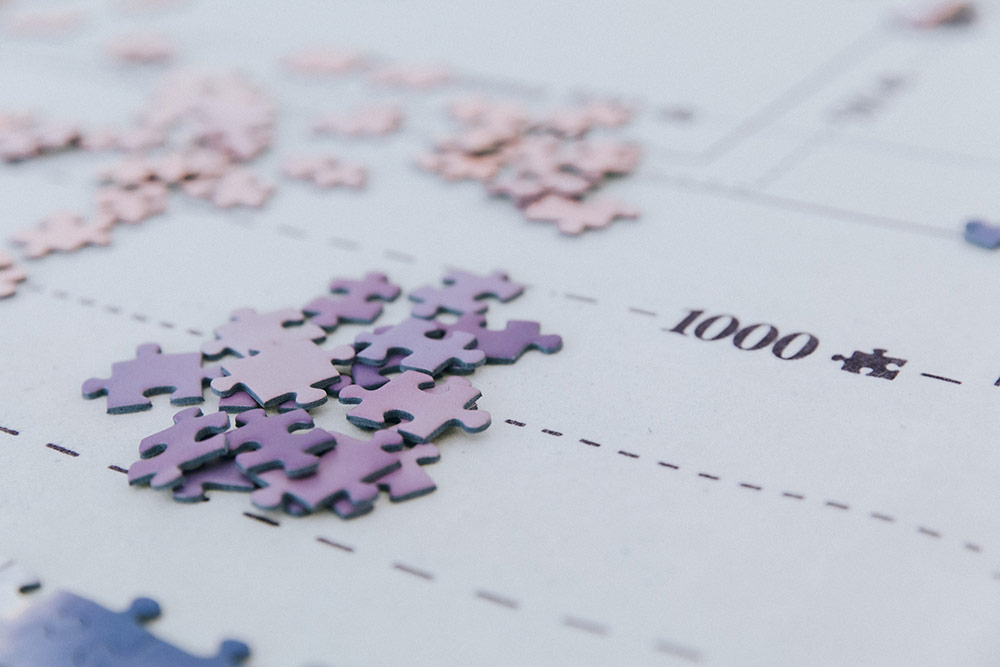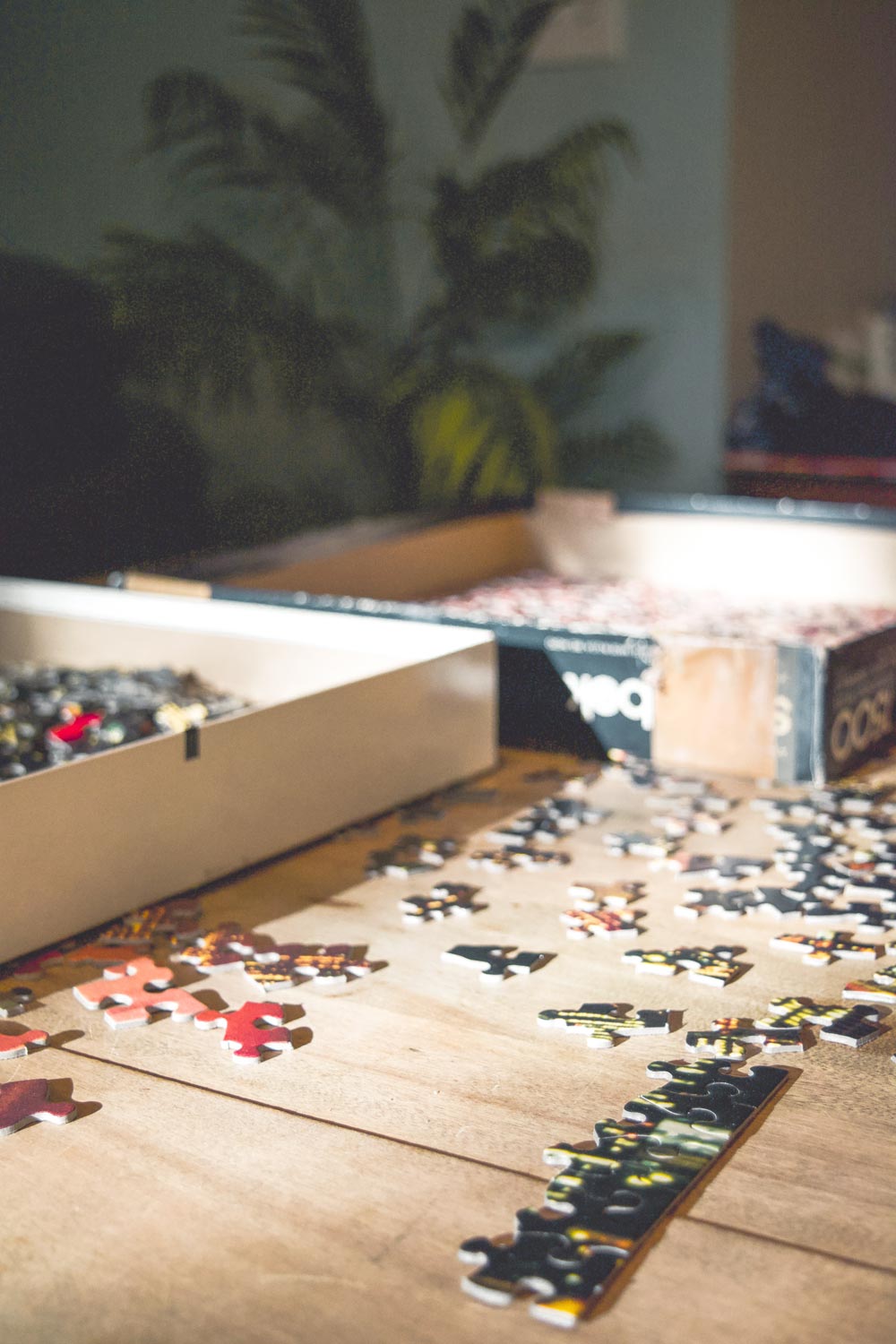1000 Pieces of Calm
Are jigsaw puzzles good for your mental health? It appears may be better than you'd first imagine!
They can help you forget about other stressful things going on in your life and give your mind something else to occupy yourself with. This break helps you to better focus on your usual daily challenges after a period of downtime.
They are a great exercise for your mind, requiring you to think in a different way then you might typically.
It can either be a solitary chillout activity, or as a way to bring people together to help out as a team. For instance, a great family bonding activity that bridges all ages together in a simple task that allows for other fun chitchat at the same time!

While doing a puzzle on your own, it can have the effect of being quite meditative. Allowing your brain to focus solely on colours, shapes and patterns.
Puzzles can aid your positivity and wellbeing. As well as the relaxation involved, your also receiving small dopamine hits of achievement each time you fit a piece together.
Scientific studies have found links that puzzles can reduce the risk of developing Alzheimer’s and dementia. By keeping the brain exercised, it ensures it stays active longer into old age.
It’s a great opportunity for us to step away from screens that we often find ourselves staring at far too often nowadays. Providing a much needed way to detox from the toxicity of some social networks.
For the young is a great way help with children’s development. Both physically with the fine motor skills in their hands, and mentally in terms of their cognitive development. The simple small things such as recognising shapes and colours, and understanding how pieces can fit together when rotated, really help aid their learning.

It can be a great way to really immerse yourself in a painting. Staring a the small pieces makes you focus on individual brushstrokes. You begin to see how the picture was painted by the artist.
So put on a nice chilled playlist, open a puzzle, and relax...

